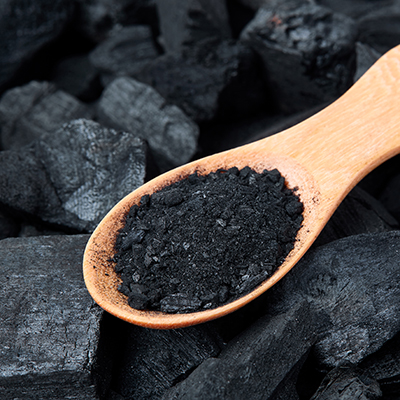The Buzz: Charcoal Juice
- by bonappetit
 What’s the buzz?
What’s the buzz?
Activated charcoal drinks: Black is the new green (juice).
What does the science say?
Charcoal lemonade, also known as “Black Magic,” “Dirty Lemon,” or “Black Rose,” among other slightly provocative names, is the latest “detox” drink taking over juice bars. The drink even gets a shoutout on Goop, the brainchild of Gwyneth Paltrow known for uber-trendy (though often quite spendy) advice, for its role in top juice cleanses. Health and fitness enthusiasts boast of its purported benefits which range from curing jet lag and hangovers to removing both dietary and environmental toxins. Some even go as far as to say that it can improve gut health, whiten teeth, boost metabolism, and make your skin glow.
These benefits are said to come from one key ingredient: activated charcoal (yep, you read that right). It’s not quite the same as kind you use when you fire up your grill; it’s made from heating coconut shells, wood, or coal until it first chars and then turns into a fine powder. Juice bars are mixing the powder with a variety of flavors, but most commonly lemon, water, salt, and maple syrup to make a lemonade-like drink. Activated charcoal was originally known for its (somewhat controversial) use in hospitals to treat drug poisoning due to its ability to absorb toxins.
But, for general wellness purposes? There is no research to support the benefits. What we do know is that activated charcoal appears to be non-specific, meaning it will likely absorb the good (vitamins and minerals) with the bad (toxins or other substances). So, if you drink your charcoal lemonade with a salad, you may wipe out all of the benefits of eating your greens. The same goes for green juices with activated charcoal added. It also can interact with medications, making them less effective (remember, it’s known for removing drugs from your system); therefore, it’s not recommended for someone taking any medications. The one thing it doesn’t appear to bind well to is alcohol, so don’t expect it to sober you up after a night of one (or two) too many cocktails.
Because there is little research on it, we also don’t know how much, if any, is safe. Also, since it’s a supplement, not a food, it’s not well regulated.
What’s the takeaway?
The potential benefits don’t outweigh the risks, and most of the drinks contain a significant amount of sugar to mask the charcoal taste. When it comes to detoxing, our lungs, kidneys, and liver are really good at removing any harmful substances on their own. Drinking enough water and eating plenty of plant foods can boost your body’s ability to get rid of harmful substances. So, do your wallet a favor and spend your money at the farmer’s market instead.
Read More: